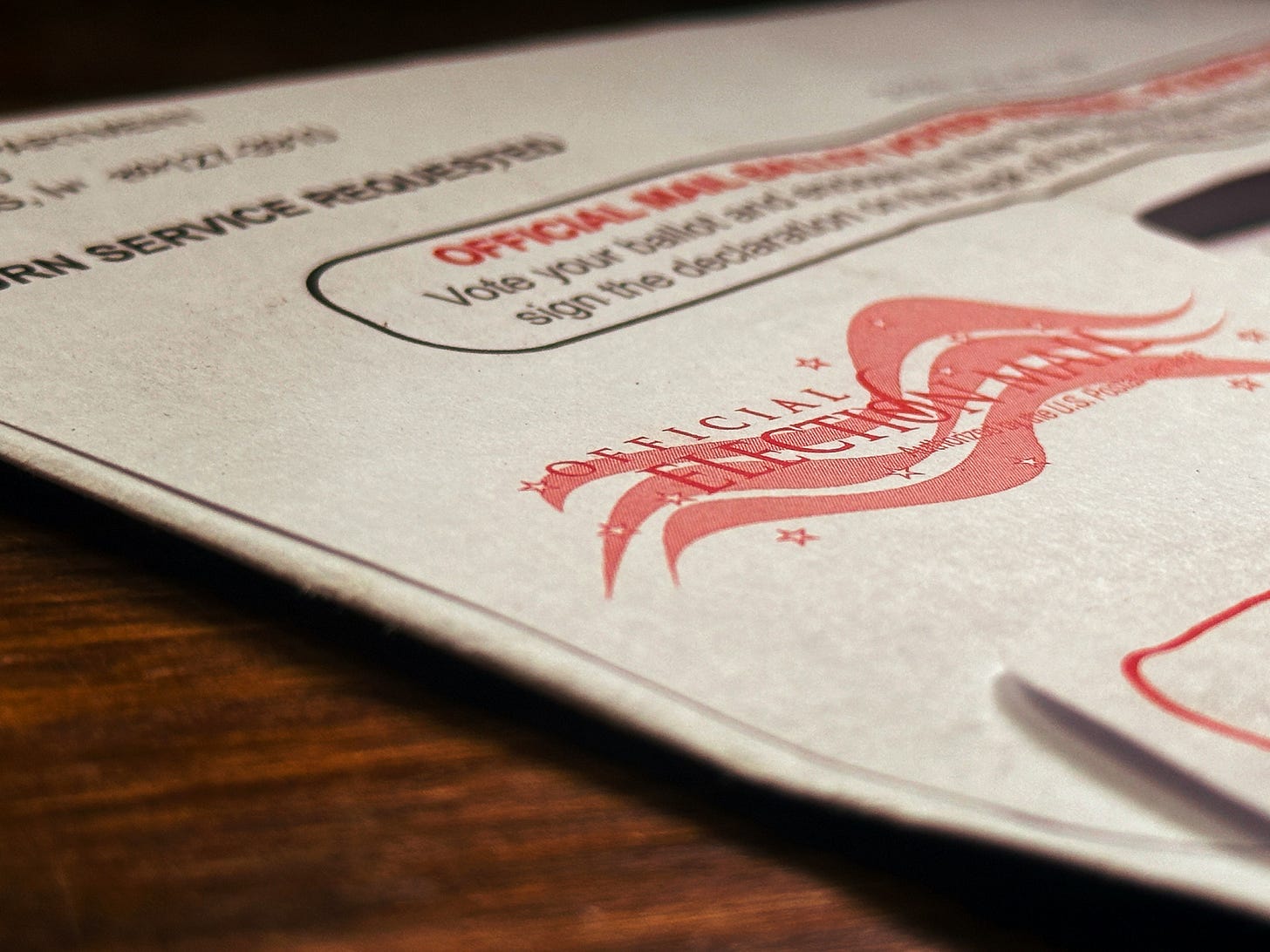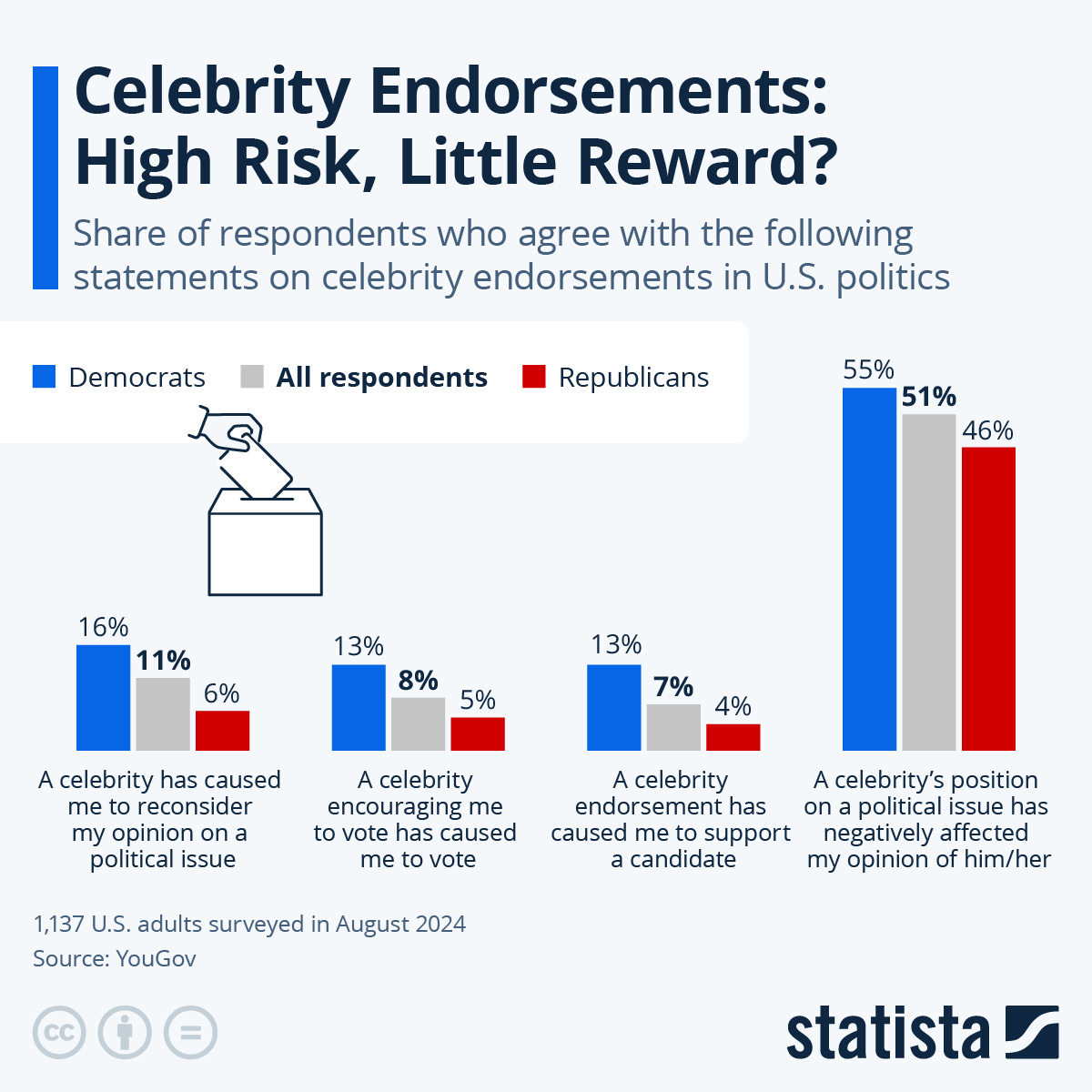Do Celebrity Endorsements Matter Anymore In Politics?
The Democrats placed considerable emphasis on celebrity endorsements this year. It did not go as expected.
There were a number of unusual aspects to this year’s Democratic presidential campaign, but one that struck me was Harris’ reliance on celebrity endorsements.
Perhaps it was because of her abbreviated campaign due to Biden’s late withdrawal, and the lack of time for voters to get to know her, but Harris’ campaign created a tsunami of celebrity endorsements that culminated in the final weeks of the campaign.
Yet despite support from the likes of Taylor Swift, Beyonce, Bruce Springsteen, Meryl Streep, George Clooney and countless others, she lost.
It’s not fair to say her celebrity endorsement strategy failed exactly, as we don’t know how many additional voters these celebrities brought to her campaign, but it did not succeed to the degree hoped for.
So, what does this mean?
At the very least, it leads us to reconsider the role of celebrity endorsement in politics. But I also believe it raises questions about how much consumer culture influences politics, and in what ways.
The value of celebrity endorsements in politics has always been an open question with many pundits claiming they have little to no effect. There are exceptions, such as Oprah Winfrey’s endorsement of Barack Obama over Hillary Clinton in the 2008 Democratic primaries which is credited “with politically significant effects on Obama’s political outcomes,” according a University of Maryland study.
The key question is, was her defeat inevitable no matter how many celebrity endorsements she had, or was it in some way a contributing factor to her loss?
I suspect it’s a little of both.
Perhaps the endorsements couldn’t compensate for the late start in any case, but I can also see how the celebrities endorsing Harris were at least part of the problem.
In the postmortems that I’ve seen on why celebrity endorsement didn’t move the needle in a positive direction in this case, the one that rings most true is that the campaign’s celebrity endorsements reinforced the perception that the Democrats have become the party of elites and they don’t understand working class concerns.
Then there’s the fact of the diminishing value of celebrity endorsements for politicians. According to a recent YouGov survey, many Americans believe celebrities are better off staying out of politics, with Republicans especially likely to think so.
Only about one in ten Americans (11%) say that a celebrity has ever caused them to reconsider their stance on a political issue, and even fewer (7%) say they ever supported a political candidate because of a celebrity endorsing them. When celebrities engage in political discussions, the most likely outcome is a negative perception of the celebrity: 51% say a celebrity's political position has led them to think less of a celebrity.
So there’s the rub – the audience that Harris’ celebrities appealed to apparently shared the Dem’s values, and likely encouraged some (mostly Democrats) to vote for Harris, but I suspect there were not many Trump crossovers in that group. And Harris’ celebrity endorsers very likely reminded Republican voters of the cultural divide between Harris and Trump supporters.
Does this mean celebrity endorsement is losing value as a marketing tool? I don’t think so. Research shows people continue to purchase brands based on endorsements from celebrities, such as professional athletes on brands related to sports, or various Influencers on fashion brands. But its impact on political campaigns is clearly diminishing.
I suspect political influence is increasingly tribal in nature, encompassing like-minded family and friends, and largely informal communities structured around select media, such as cable news and radio programs, that provide a highly filtered point-of-view on the issues.
These are the sources that influence large numbers of people on political issues, and not the celebrities who may be seen as out of touch with the realities of the daily lives of many voters.





